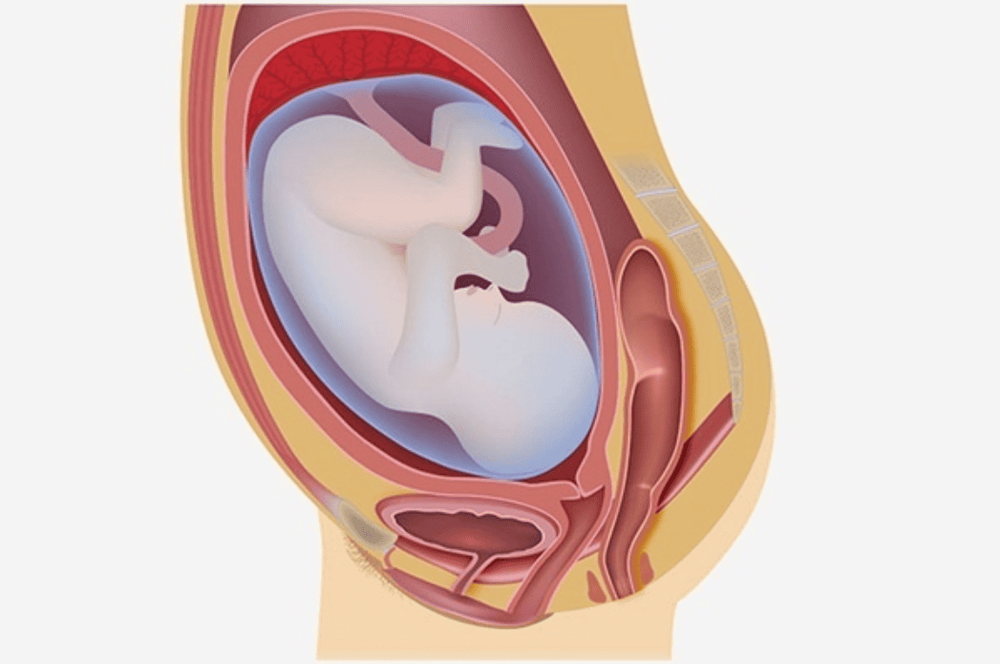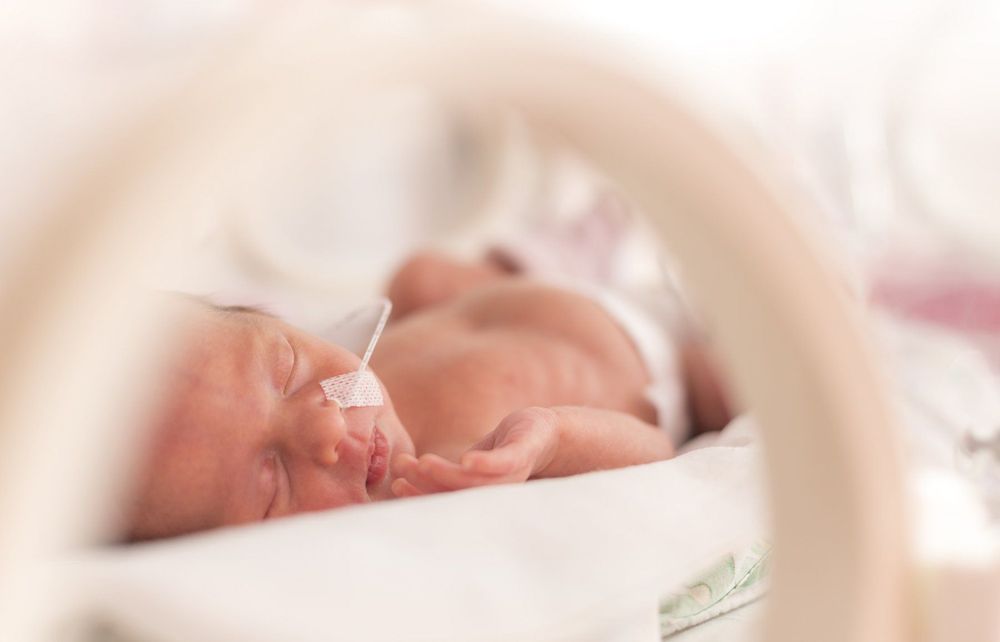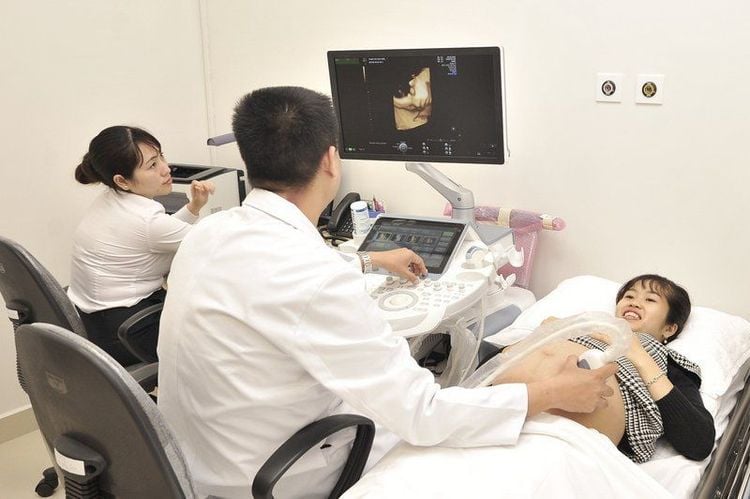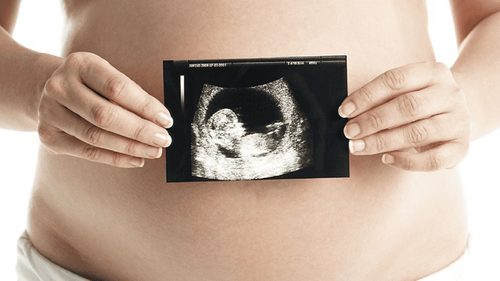This is an automatically translated article.
Posted by Doctor CKI Nguyen Thi Man - Department of Obstetrics and Gynecology - Vinmec Da Nang International Hospital
Amniotic fluid infection is a bacterial infection that causes inflammation of the chorion and amniotic membrane surrounding the fetus. It usually occurs during the last months of pregnancy or labor and leads to severe infection in the mother and baby.
1. Inflammation of the membranes during pregnancy
Normally, the fetus will lie in the amniotic sac, surrounded by amniotic fluid and separated by the amniotic membrane from the outside environment. Until labor gives birth, before the fetus comes out, the amniotic membrane will be broken, the amniotic fluid flows out and the baby is born officially exposed to the outside environment.
Amniotic fluid infection is a bacterial infection that causes inflammation of the chorion and amniotic membrane surrounding the fetus. It usually occurs during the last months of pregnancy or labor and leads to severe infection in the mother and baby.

Viêm màng ối trong giai đoạn mang thai
2. Causes and symptoms of amnionitis
2.1 Causes of amniotic fluid inflammation The cause of amniotic fluid inflammation is caused by bacteria such as E. coli, group B Streptococcus and anaerobes in the amniotic membrane. These bacteria will gradually progress to the uterine cavity through the vaginal route, damaging the amniotic membrane leading to amnionitis. In addition, chorioamnionitis can also be caused by a blood-borne infection and is usually caused by the bacteria Listeria monocytogenes.
2.2 Symptoms of amniotic fluid inflammation Most cases of chorioamnionitis during pregnancy have no symptoms. Some cases have signs of premature amniotic fluid leakage or signs of amnionitis appearing in labor such as:
Mother has a high fever over 38°C, sweating or cold, rapid pulse (> 100l/min) Heart fast pregnancy (basal rate > 160l/min) Uterus tender and painful Amniotic fluid leak, rupture of membranes Amniotic fluid has an abnormal odor Blood test has an increased white blood cell count from 15000 to 18000. Ultrasound: Can detect the amount of amniotic fluid little (after rupture of membranes, leaking amniotic fluid, with echo

Mẹ bầu sốt cao trên 38°C
3. Amniotic fluid infection during pregnancy is dangerous?
Amniotic membranes only occur in about 1-2% of pregnancies, but if not detected and treated promptly, it will lead to serious complications for mother and fetus:
Stillbirth, miscarriage : Cases of chorioamnionitis in early pregnancy that are not detected and treated will lead to early stillbirth, early miscarriage. Premature birth: In case of underterm pregnancy, infection of the amniotic membrane with prematurity leakage, premature rupture of membranes leading to premature birth and complications of preterm infants when the respiratory and nervous systems are affected. The nervous system, digestive system... are not fully developed, so it will be difficult for children to adapt to the external environment. Neonatal infection: In cases of amnionitis when the pregnancy is full term, the baby will be at risk of neonatal infection, especially infection with group B Streptococcus, which will have very serious complications to the baby. Newborn (this type of bacteria can be checked before birth and treated during labor) Uterine infection, mother's blood infection: If amniotic membranes are not treated in time, bacteria will invade Deeper penetration causes endometritis, uterine infection, even blood infection, causing serious consequences for the mother, sometimes requiring hysterectomy for treatment.

Trẻ sinh non do mẹ bầu bị viêm màng ối khi mang thai
4. What to do if you have amnionitis?
Because amniotic fluid disease often has no symptoms, so we need to prevent it first by strengthening resistance during pregnancy:
A nutritious diet: A diet rich in protein such as meat, fish, eggs... and rich in vitamins from fruits and vegetables... Moderate activity: Work and rest reasonably, get enough sleep. Adequate exercise will create a supple body and healthy pregnancy. Besides, gynecological examination and treatment before pregnancy along with regular antenatal check-ups help detect and treat early inflammation. Medicine during pregnancy is also important to prevent inflammation of the membranes. In case of amniotic membrane disease detected in pregnancy, the location depends on gestational age and infection status Actively treat infection with high-dose combination antibiotics Consider lung maturation in preterm pregnancy and birth during labor. Postpartum follow-up: Mother's general condition, uterine contractions, fluid production, and active tocolytic drugs, antibiotics in full doses.

Mẹ bầu nên đi khám thai định kỳ theo hướng dẫn của bác sĩ
At Vinmec International General Hospital, there is a package maternity service as a solution to help pregnant women feel secure because of the companionship of the medical team throughout the pregnancy. When choosing Maternity Package, pregnant women can:
The pregnancy process is monitored by a team of qualified doctors Regular check-up, early detection of abnormalities Maternity package helps to facilitate the process. Birth program Newborns receive comprehensive care To register for examination and treatment at Vinmec International General Hospital, you can contact Vinmec Health System nationwide, or register online HERE HERE
MORE
What color is amniotic fluid? Common problems with amniotic fluid Amniotic fluid infection: Early warning signs What is premature rupture of membranes and how dangerous is it?














